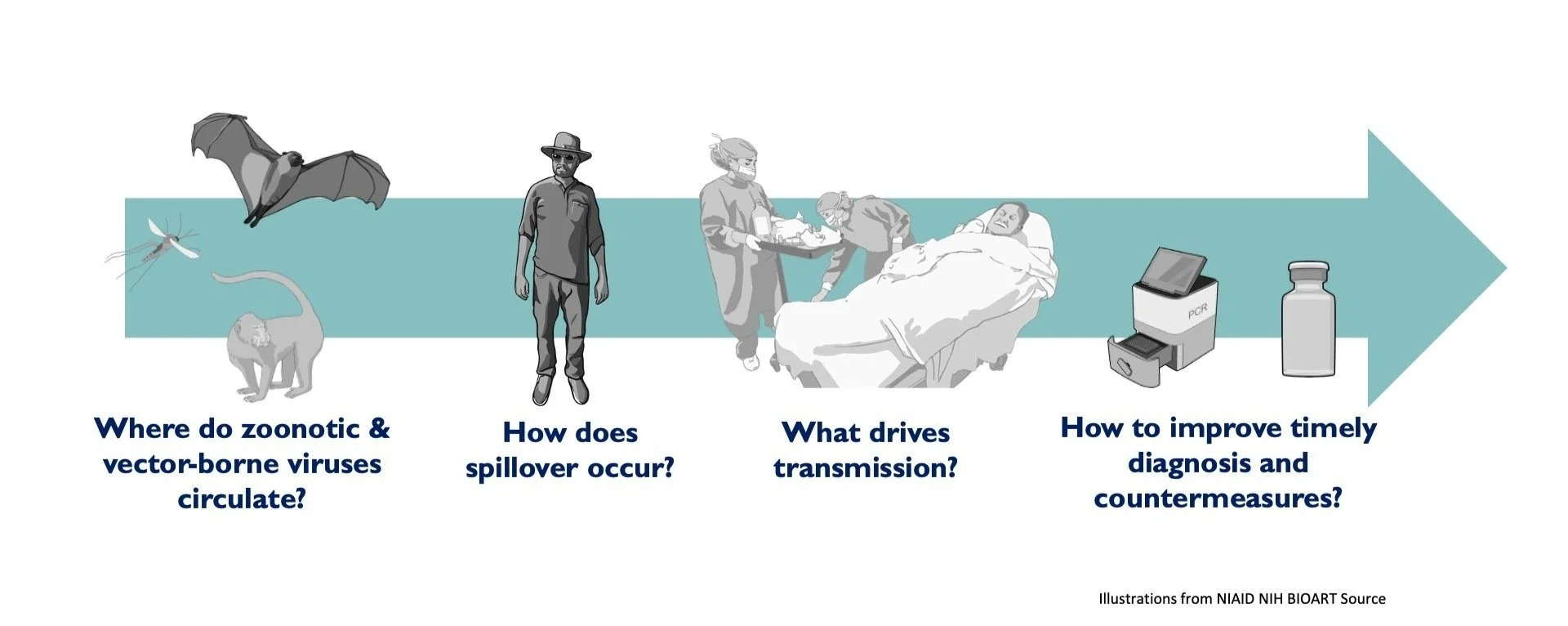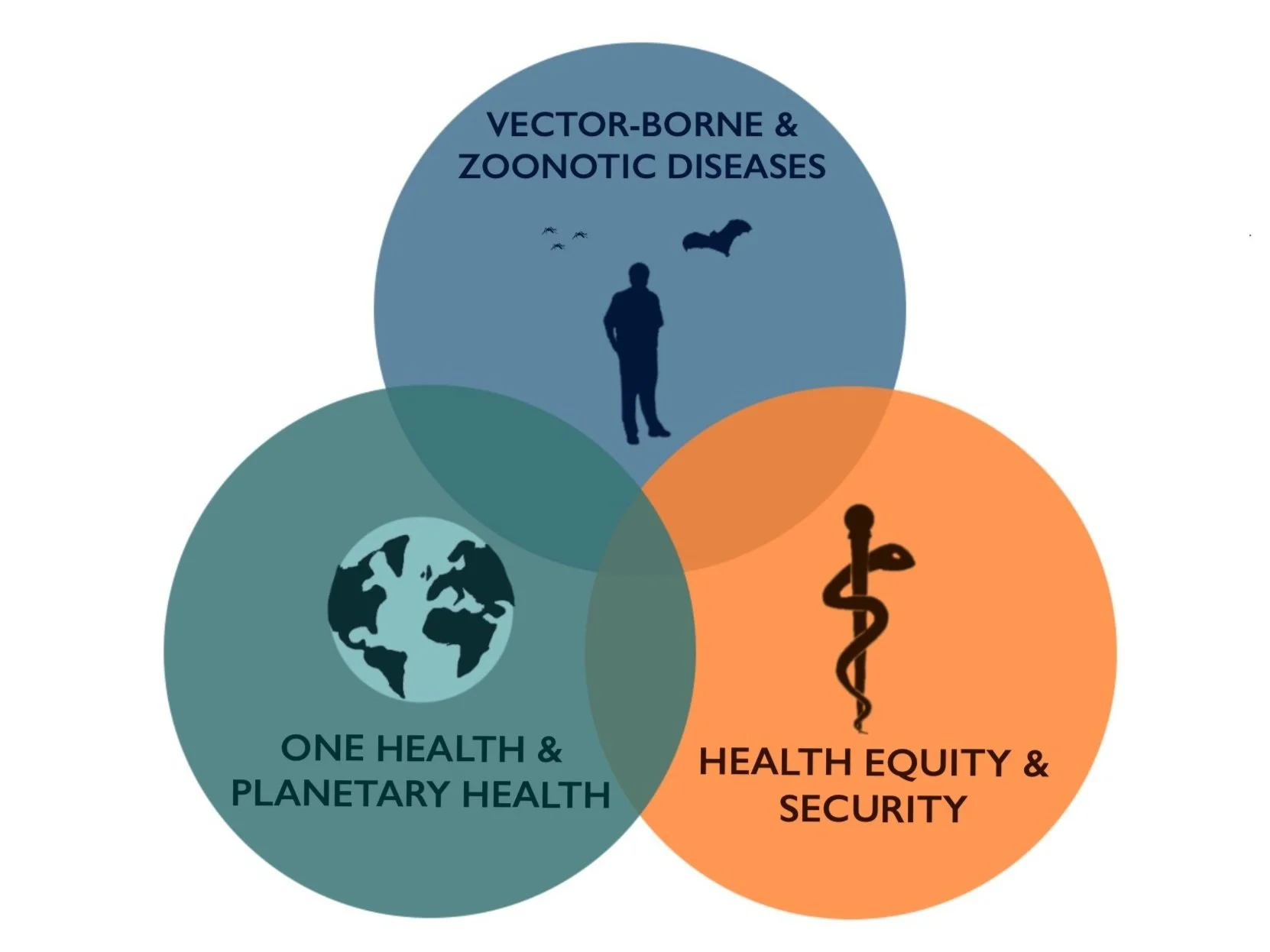Most emerging infectious disease outbreaks are caused by zoonotic and vector-borne pathogens, necessitating an integrated understanding of human, animal, and environmental health. To prevent future pandemics we must better understand where these pathogens may emerge, how they are transmitted, and what healthcare systems and decision-makers can do to prepare. Thus, an interdisciplinary and translational approach is necessary, which is the inspiration for our group — the Translational Infectious Disease Eco-Epidemiology (TIDE) lab.
Our goal is to improve early detection and mitigation of globally emerging zoonotic and vector-borne disease outbreaks. We aim to translate field, laboratory, and clinical data into actionable tools for decision-makers. We have three key research themes:
1. Understanding the ecology and epidemiology of zoonotic & vector-borne diseases
2. Translating scientific knowledge for decision-makers, using One Health & planetary health frameworks
3. Improving health equity & security through access to diagnostics and countermeasures.
Our work takes place at the human-animal-environmental interface and aims to help local and international decision-makers, including clinicians and public health experts. Thus we are a highly interdisciplinary group, with backgrounds and interests spanning infectious disease ecology, epidemiology, modeling/data science, and clinical research. We also collaborate locally and internationally across disciplines. Explore our current projects and research themes below to learn more about our work.
Understanding eco-epidemiology & spillover
Identifying outbreak origins & spillover
Evaluating modes of transmission
Translating evidence for decision-makers
Developing risk maps of emerging viruses
Creating evidence-based One Health/planetary health tools
Improving access to diagnostics & countermeasures
Analyzing diagnostic networks
Building equitable local & global partnerships


